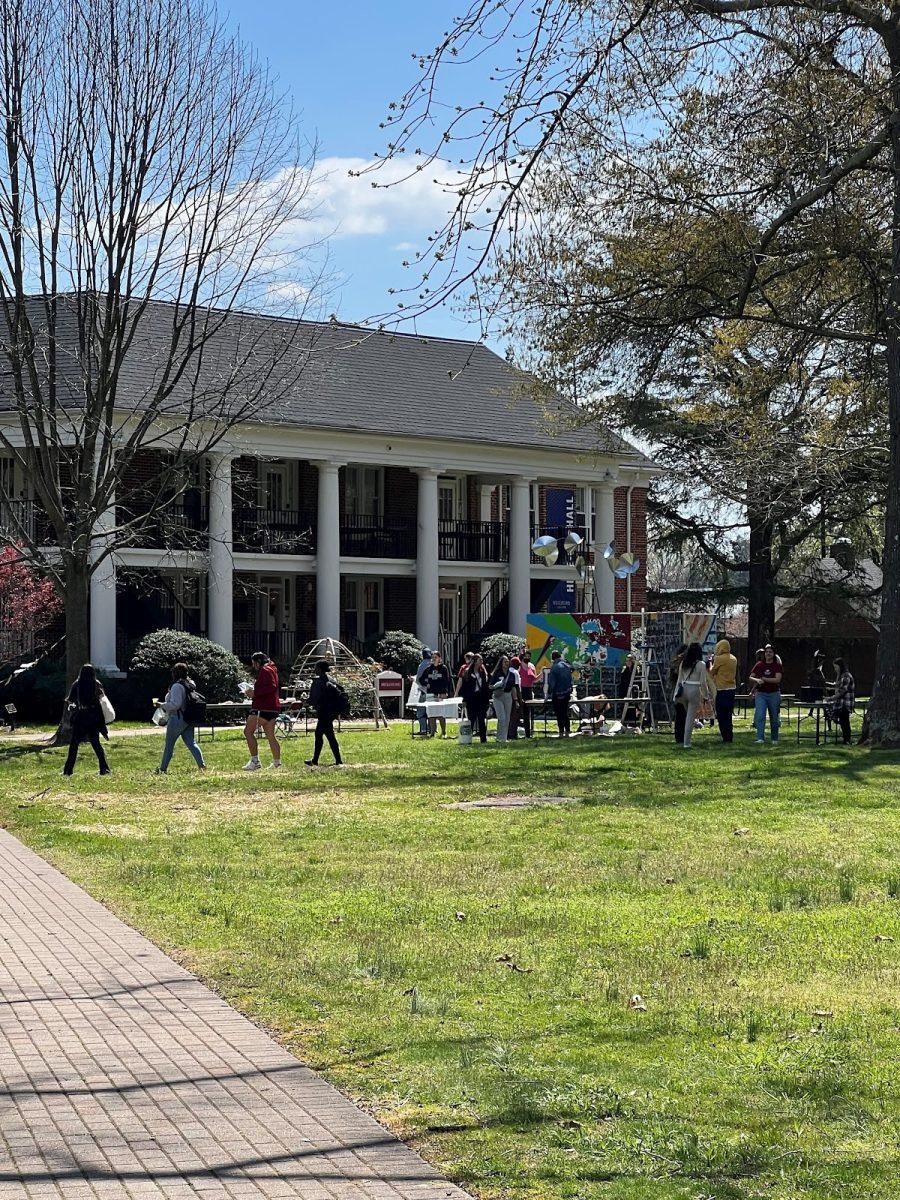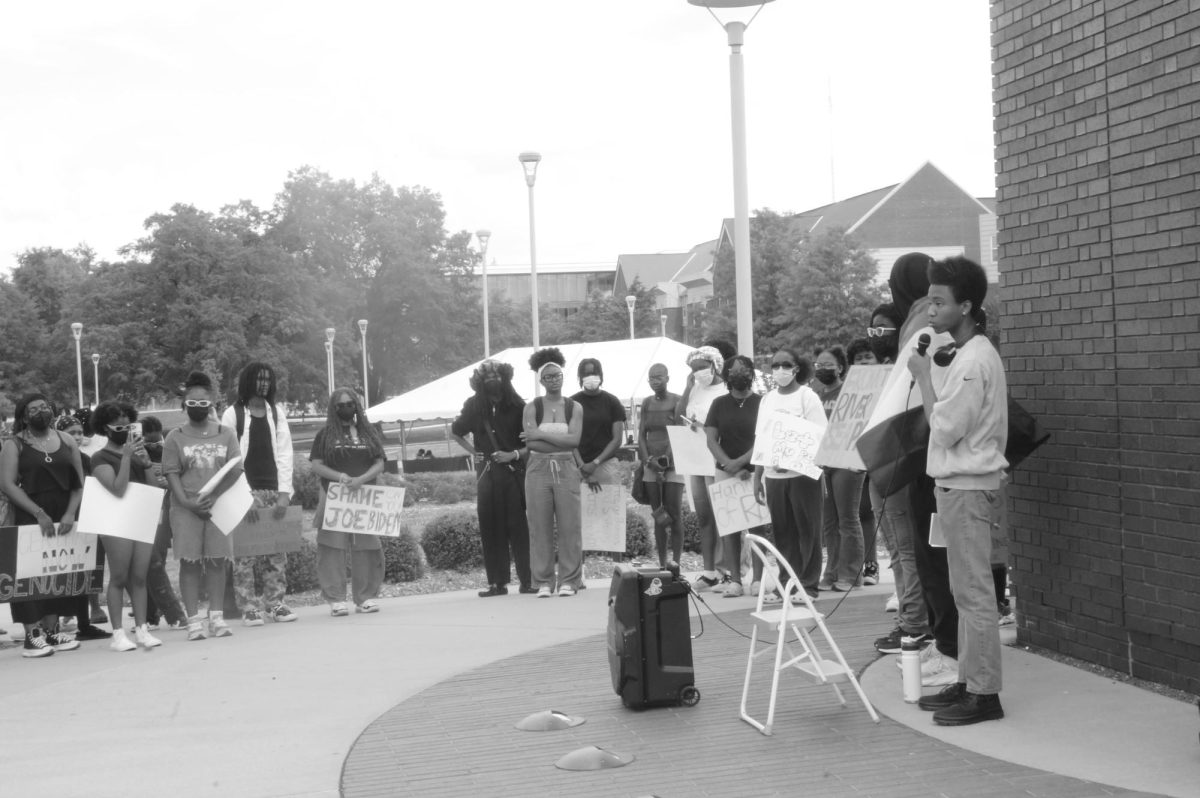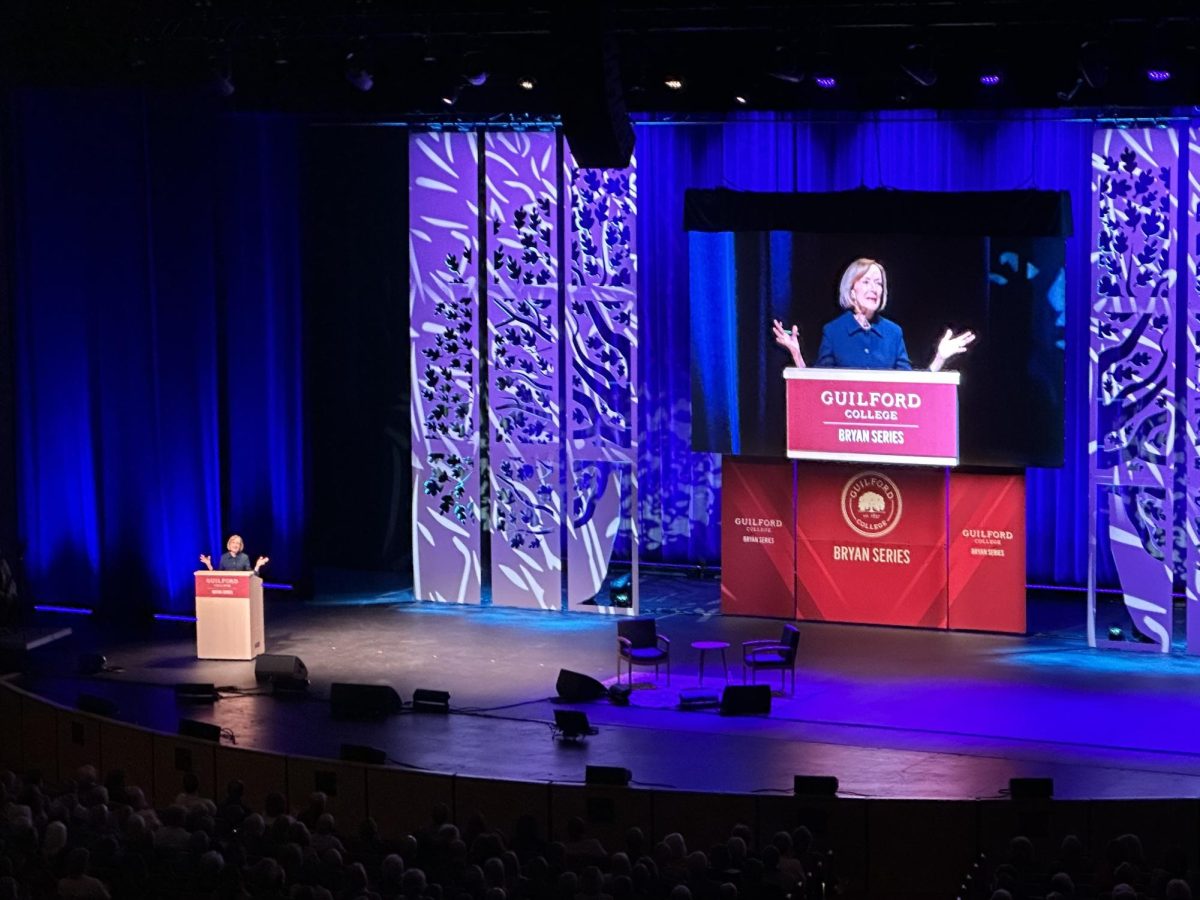Q: From reading your biography on the internet, I notice you have a Ph.D. in Political Science as well as B.S. in Physics from MIT. How do such divergent academic interests inform your work today?
A: Well, I will tell you a couple of things. First, I certainly did not have any intentions to do what I’m doing today. So, those things do inform my work but I didn’t do them with the intention that I would then become a journalist. But, I still think that they do inform my work and are helpful. I’m a science journalist and learning and studying physics meant that I developed a facility with scientific concepts and with numbers and with graphing things and with understanding things the way a scientist does. That helps me both communicate what I learned and it helps my relationships with the people that I am interviewing, the scientists.
As to my political science, I think there are a lot of concepts that I learned in political science in terms of understanding how I look at the world, which I then communicate.
Q: What drew you to writing?
A: Well, I’ll start by saying again, that I didn’t know I wanted to be a journalist. And my writing was terrible in high school and wasn’t much better at MIT in college. I really didn’t know how important it was. Now, I would tell a young scientist that even if they don’t intend to be a journalist, and even if they never do become a journalist, those communication skills are incredibly important because even if you are only talking to other scientists, you still have to communicate really well. In order to write a real engaging grant proposal, for instance, it is very important to be able to communicate well. Grants that are well written are, all other things being equal, more likely to be funded. Certainly, communication is very critical. But, I got off the question, what drew me to writing.
I don’t think of myself as just a writer. Actually, I am doing more writing than I have done for a long time. Initially I was interested in print journalism and I started out doing magazine journalism. It seemed like that was the great outlet for my scientific understanding of the world. I always had a slightly activist focus on the world. Most of my reporting has been related to something of public policy interest. That is what brought me in. Before I specialized in global warming I did all sorts of reporting on other things mostly environmental topics (including) nuclear waste disposal, chemical waste disposal, hazardous waste disposal.
Q: Why is that?
A: I don’t know. It is not in my family history because my parents are not involved in that way; they did not encourage me in that way. I cannot explain it. I would not have guessed in high school. If I had any politics in high school, they were probably Libertarian. During college, I started getting some more progressive views of the world. I took a year off between my sophomore and junior years and went to Bolivia. I worked in a non-government organization having to do with helping people in Bolivia with what was then called appropriate technology, solar wind mills and those sorts of things. Something in my first couple of years in college pushed me in that direction.
Q: In your book, Deep Water, you suggest drastic actions need to be taken to prevent sea level rise. Ideally, what actions need to be taken to prevent the catastrophe you describe in your book?
A: The climate is like a flywheel. Once you get a flywheel going, it is hard to slow it down. There is no doubt that there is going to be a continued increase in sea level for quite a while no matter what we do. My thinking is that the sooner that we start to try to slow the flywheel down the better we are, the less the amount of sea level rise and the less likelihood that some tipping point will be reached that will cause changes that are irreversible in the polar ice sheets. The Greenland ice sheet and the West Anarchistic ice sheet, for examples. What can be done can be looked at from a policy point of view and from a technology point of view.
From a policy point of view, two things need to happen. One, we need to make energy more expensive and we need to make energy more expensive in a predictable way that slowly ratchets up so that people who have money to invest in technologies that use less, that create a less carbon dioxide will have incentive to invest. For instance, if we don’t know that the price of fossil fuel is going to get progressively more expensive while you have a solar technology that is not super economic right now, you might have a hard time getting investors.
But if you know that next year electricity will be 20 percent more and the year after that 20 percent more, and it is going to get more each year, then investors will say ‘maybe it is not economic now but it’s going to be and I want to be part of that and I want to take advantage of that.’ The fossil fuel related sources of energy have to be more expensive. When we talk about fossil fuel being cheaper, let’s say electricity produced by a coal plant being cheaper than electricity produced by a solar cell, that’s not exactly based on a physical principle. Like solar panels are inherently more expensive. There are so many subsidies involved in making power and in extracting fossil fuels that a lot of the economics have to do with how things are subsidized. Just to take one controversial way of looking at it, if we did not have this enormous defense department investment in protecting shipping lanes, then oil would be more expensive. That is a form of subsidies. There are many forms of subsidies throughout the economy for every kind of fuel. There are fewer subsidies for nontraditional sources of energy. We need to take away some of the subsidies for fossil fuel and tax fossil fuels more heavily and therefore make the nontraditional forms of energy by comparison cheaper. That is an important policy program.
On the technology side, I cannot tell you which technologies are the ones that will save us from this or help us. We certainly should be investing in research on a lot of these technologies because our investment in alternative energy and in conservation is relatively small. We need to be doing more of that. At the same time we are making it more expensive to use energy from fossil fuels. We need to develop the technologies that don’t come from fossil fuels. You could look at specific technologies like new kinds of windmills, improved solar energy, ways of making fuel with sunlight. They call it artificial photosynthesis, which would be something that mimics the process that leaves make fuel for trees. You can do that physically and chemically in some sort of artificial system. The research has not gone into it to make that possible.
There are wacky things that are maybe needed as well. There are very smart people who think that before the century is over we are going to have factories with the sole purpose of sucking carbon dioxide out of the atmosphere. Even if we dramatically slow down how much carbon dioxide we are producing, even by cutting emissions dramatically, since the carbon dioxide stays in the atmosphere for a long time, the level still goes up just more slowly.
Some people are saying, given how close we are at having reached a dangerous level of warming on the planet, we are going to have to suck carbon dioxide out if the atmosphere, not just put less in.
Q: Can you elaborate on some of the consequences of inaction on climate change?
A: The most obvious effect of the warming of the planet is rise of sea level. When the planet warms there are three ways that make sea level go up. First, the oceans get warmer and everything expands when it gets warmer. So, the oceans are expanding because they are slowly getting warmer. That warmth is penetrating: it is now at the surface, and it is penetrating deeper in to the oceans. The oceans are gradually getting bigger, therefore rising. The basins are not getting bigger. The ocean basins are like a big bathtub. If you expanded the volume of the water in your bathtub, it would rise in the bathtub, and it is the same in the ocean.
Second, mountain glaciers around the world are melting dramatically. The Andes of Peru have lost 25–40 percent of their volume in the last 40 years. That is a huge amount. They do not contain as much water as the polar glaciers but because they are in warmer places, the Andes are near the equator and the mountains in Alaska are pretty far north but not that far north. Then you have glacier in the continental U.S. All these things are melting. There are about a two feet equivalent of sea level frozen in the world’s mountain glaciers that is melting fast.
Finally, there are the polar ice sheets, the Greenland ice sheet and two ice sheets in Antarctica, the east and the west. Those are the greatest concern and the greatest threat for the future. Those are releasing a lot of water already. The concern is they may reach a point where they start losing ice very quickly and we do not know whether they can lose ice very quickly or whether it would always be at a relatively slow rate. That could be the most important consequence of global warming.
There are many others. There is the average temperature increase, which of course you know about and later on in the century, there will be some places that are going to be almost uninhabitable because of the slow increase of the temperature.
Global warming, by warming the planet, adds energy to what scientists call the climate system. The climate system is the interaction of all the different parts. It is the clouds, the water, the land; all those parts make up the climate system. Global warming adds energy to it and when it adds energy to it that makes it work faster. That is why you expect there to be more intense rainfall in certain places. Because it is warmer, you expect some places are going to dry out more. Those things are already happening.
You will expect some storms are going to be more powerful. Storms will be longer. Heat waves will be longer and deeper. I reported in Paris in 2003 on a heat wave that killed 200 people. Forty thousand people died in Europe as a whole. It was the hottest temperatures experienced in hundreds of years.
Q: In your opinion, what will it take to get people to wake up and the reality of global warming?
A: I don’t really know. The rest of the world is more concerned than the U.S. The fossil fuel industry is spending a lot of money to mislead Americans. It is terribly scary to imagine all these things happening, and a lot of people don’t want to think about it. I heard another journalist speak last weekend concerning a book he wrote about the anti-slavery movement. Not many people were interested. Suddenly, he has several speaking engagements. People were interested because they were comparing this to the global warming movement. Something as normal as keeping slaves suddenly became a moral issue. So maybe this could happen with global warming as well.
350.org is a student movement founded by Bill McKibben, an activist from Vermont, who is known for writing “The end of Nature” to encourage colleges to divest their investments from the fossil fuel industry. According to McKibben, the industries are a threat to the world because they have investments in stockpiles of fossil fuels. If we stopped them from burning their stockpiles, all the people who invested would lose money. So in order for these people to get what they need, we must endanger the planet. It could be a couple more Hurricane Sandys will make people realize how serious this is. But I don’t know if this is the case.
Q: In your opinion, why do politicians continue to hesitate on this issue?
A: There is a huge amount of money in fossil fuel, in oil, coal, and natural gas. It’s a very powerful industry, same as tobacco or the gun lobby. Why, when it seems so obvious to so many people that we need better criminal background checks, is it such a problem in Washington? It’s because of the influence of all of that money. There’s no question that’s what’s going on in Washington.
Q: You have covered this issue for many years, why has it become such a passion for you?
A: I heard Mckibben speak in 1980’s. The in the late 1990’s I worked for an environmental show on climate change. I went to an international conference and decided that this is really important. This may be an issue that I can focus on. I’m very interested in past climate because it can tell us about future climate changes. I’m convinced this is the most important issue there is.
Q: You have followed environmental issues for a long time. Can you talk about any trends you notice today that are different from when you began?
A: Newspapers used to have a science section. Now there are very few left. One of the reasons is that the papers can’t afford them anymore. Papers have cut coverage to the bone. There’s a phrase in journalism, “news you can use.” Science isn’t exactly news you can use. Now newspapers include cooking tips. There was no internet when I started. There are more sources of non-traditional media about environmental issues.
Q: What would you say to a college student who feels they do not have any power over the issue of global warming right now?
A: I struggle with this myself. Some of my work is funded by organizations, and I’ve got to make a case that my work is important. It’s not clear what’s going to make a difference. I would not tell someone that what I do is certainly the only way. And I would agree it might not be successful. But it might be. Think about what skills they have and what interests. And what is the best way to bring change to their issue. I think getting involved in student movements like 350.org is good. Some of the people will become leaders. But these organizations need all kinds of people: communicators, organizers, entertainers. There is not one good answer. I would encourage students, because this is the most important work you can do with your life, and it could make a difference.












